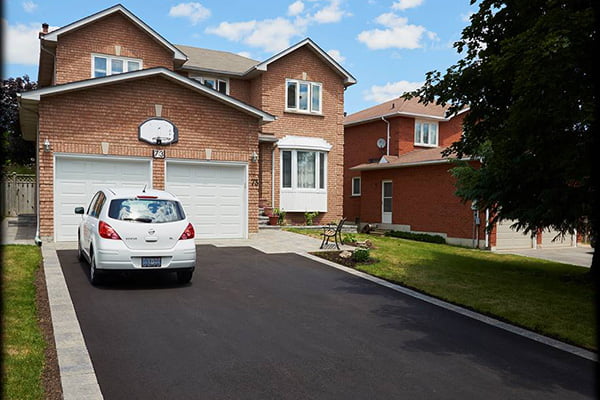Homeowners often overlook the importance of their driveways and pathways, yet they play a crucial role in the overall aesthetics and functionality of a residential property. Residential asphalt paving is not just about laying down a surface; it’s about creating a durable, visually appealing entrance to your home.
What is Residential Asphalt Paving?
Residential asphalt paving involves the installation of asphalt surfaces such as driveways, walkways, and patios in residential settings. Unlike concrete, asphalt offers flexibility, making it ideal for areas prone to freezing and thawing.
Importance of Quality Paving for Residential Properties
Investing in high-quality residential asphalt paving offers numerous benefits beyond mere aesthetics. A well-paved driveway enhances curb appeal, increases property value, and provides a durable surface for vehicles and foot traffic.
What Are The Benefits of Residential Paving?
Enhanced Curb Appeal
A well-maintained asphalt driveway instantly improves the overall appearance of your home, leaving a positive impression on visitors and potential buyers.
Increased Property Value
Residential properties with professionally paved driveways often command higher resale values due to their improved aesthetics and functionality.
Durability and Longevity
Properly installed asphalt surfaces can withstand heavy loads and harsh weather conditions, providing years of reliable service with minimal maintenance.
How You Can Choose the Right Contractor?
Selecting the right contractor is crucial for the success of your residential paving project. Here are some tips to help you make an informed decision:
Researching Local Paving Companies
Start by researching local paving companies online and read customer reviews to gauge their reputation and reliability.
Asking for References and Portfolios
Request references from past clients and ask to see portfolios of completed residential paving projects similar to yours.
Evaluating Quotes and Proposals
Obtain quotes from multiple contractors and compare their pricing, services, and warranties before making a decision.
How You Can Make Preparation and Planning?
Proper preparation and planning are essential for a successful residential paving project. Here’s what you need to consider:
Site Inspection and Assessment
Schedule a site inspection with your chosen contractor to assess the condition of your existing driveway and discuss your paving goals.
Clearing and Grading
Clear any debris or vegetation from the site, and ensure proper grading to prevent water pooling and drainage issues.
Drainage Considerations
Address any existing drainage issues and plan for proper water runoff to prevent damage to your new asphalt surface.
Materials and Equipment
The quality of materials and equipment used can significantly impact the outcome of your residential paving project. Here’s what to look for:
Quality of Asphalt Materials
Choose a contractor who uses high-quality asphalt materials that are designed to withstand heavy traffic and harsh weather conditions.
Machinery and Tools
Ensure that your contractor has access to modern paving machinery and tools to ensure efficient and precise installation.
Paving Process
The paving process involves several key steps to ensure a durable and long-lasting asphalt surface:
Base Preparation
Properly preparing the base is essential for a stable and durable asphalt surface. This may include excavating and compacting the soil, installing a base layer of gravel, and applying a binder course.
Asphalt Application Techniques
Experienced paving contractors use various application techniques, such as hot mix asphalt or cold mix asphalt, depending on the specific requirements of the project.
Compaction and Finishing
After the asphalt is applied, it must be compacted using heavy rollers to ensure proper density and smoothness. Finishing touches, such as edge sealing and line striping, complete the project.
What Are The Maintenance Tips?
Regular maintenance is key to prolonging the lifespan of your residential asphalt surface. Here are some essential maintenance tips:
Regular Inspections
Inspect your asphalt surface regularly for signs of damage, such as cracks, potholes, or drainage issues, and address them promptly.
Sealcoating and Repairs
Sealcoating helps protect your asphalt surface from the damaging effects of UV rays, water, and chemicals. Additionally, repair any cracks or potholes as soon as they appear to prevent further damage.
Snow and Ice Management
During the winter months, use snow plows or shovels with plastic blades to remove snow and ice from your asphalt surface without causing damage.
Common Issues and Solutions
Despite proper maintenance, asphalt surfaces may encounter some common issues over time. Here’s how to address them:
Cracking and Surface Damage
Cracks and surface damage can occur due to freeze-thaw cycles, heavy traffic, or inadequate maintenance. Repair damaged areas promptly to prevent further deterioration.
Drainage Problems
Poor drainage can lead to water pooling and erosion, causing damage to your asphalt surface. Ensure proper drainage by maintaining gutters and downspouts and addressing any grading issues.
Fading and Wear
Over time, exposure to sunlight and traffic can cause your asphalt surface to fade and wear. Sealcoating and regular maintenance can help protect against fading and extend the lifespan of your pavement.
Conclusion
In conclusion, investing in residential asphalt paving is a smart decision that offers numerous benefits, including enhanced curb appeal, increased property value, and durability. By choosing the right contractor, proper planning, and regular maintenance, you can enjoy a beautiful and functional asphalt surface for years to come.




